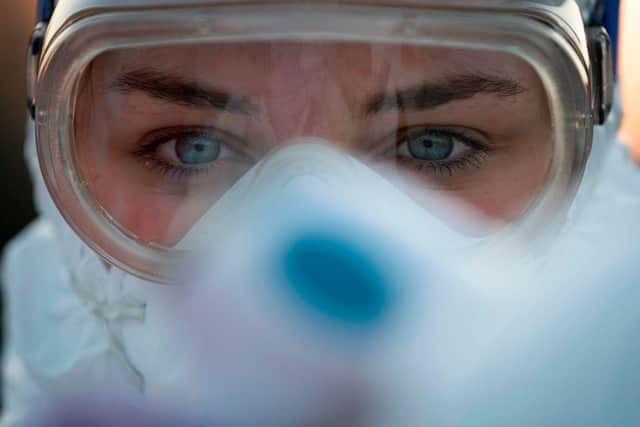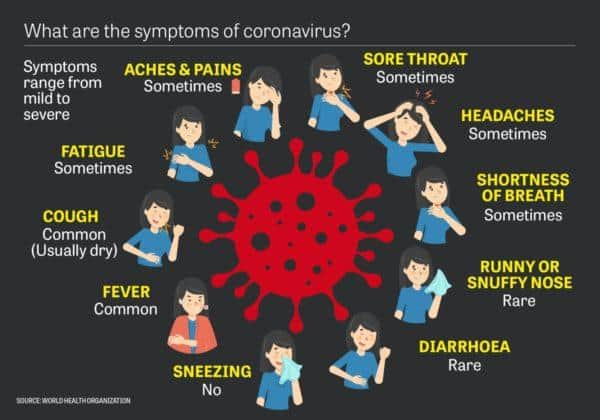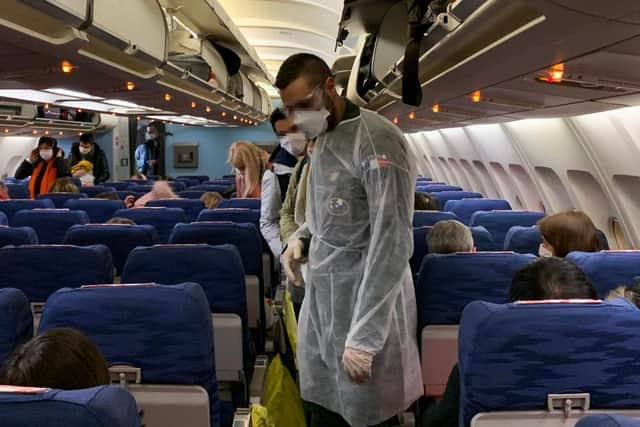When will coronavirus end? Latest update on Covid-19 vaccine, testing and when the virus could be brought under control
This article contains affiliate links. We may earn a small commission on items purchased through this article, but that does not affect our editorial judgement.
It's not an easy time to be living in, full of anxiety and worry, so just when can we expect the pandemic to come to an end?
Here's everything you need to know:
When will coronavirus end?


At the time of writing, nobody has any real idea of when the coronavirus pandemic will come to an end.
Advertisement
Hide AdAdvertisement
Hide AdSome estimates predict the worst of it to be over in a couple of months, with lockdown and quarantine measures lifted by then also.
But other models suggest we could see draconian attempts at controlling the virus for even longer, until a proven vaccine is developed and distributed across the world.
There so much left to learn about this most new of viruses, but even once scientists have a better understanding of its mechanics, the unprecedented nature of the outbreak means there will still be many uncertainties.


We could be in this for the long haul.
At the time-of-writing, the UK has begun its sixth week of lockdown measures, first put in place by Boris Johnson.
The measures were initially put in for three weeks, with a review due at the end of that period. On Thursday 16 April, Secretary of State Dominic Raab announced that the measures would be in place for “at least” another three weeks.
That takes the UK to 7 May, though it seems unlikely the Government would want to risk the chaos that would be caused be lifting lockdown on a Friday.


It’s more likely they would wait until the next Monday, and so 11 May could be the earliest we see measures relaxed.
Even then, it’s highly unlikely the measures will be lifted outright, with a gradual easing of restrictions – as is beginning to be seen in other countries – more likely to be implemented to avoid a second surge of the virus.
How will coronavirus end?
Advertisement
Hide AdAdvertisement
Hide AdCoronavirus will be downgraded from a pandemic once it no longer matches the specifications put in place by the World Health Organisation.
Currently, a pandemic is described as having increased and sustained transmission throughout the general populous, across one or more continents.
Once new instances of coronavirus start to decrease, and the number of affected areas begins to lower, it will likely see this downgrade.
It could still be some time after that until the disease is brought completely under control worldwide though, and areas with less developed health systems could still struggle with the virus for years to come.
What will make it stop?
How the disease is eventually brought under control is also not set in stone.
One possibility is that cases of the disease will start decreasing when enough people develop immunity, either through infection or vaccination.
A much more alarming scenario suggests that Covid-19 will eventually just become a commonplace respiratory disease, and will never really leave us.
You can take some solace in the fact that if that were to be the case, medical research into treatment of the disease would likely have accelerated to the point where the coronavirus is treatable for a large demographic of people.
Advertisement
Hide AdAdvertisement
Hide AdBut how long any of this will take is essentially anybody's guess at this point.
Based on information from countries grappling with serious outbreaks, an Imperial College Covid-19 Response Team study found that coronavirus could lead to as many as 250,000 UK deaths and a health system put into chaos, with “surge limits” for general ward and intensive care beds exceeded by at least eight-fold.
The paper warned that, in order to work comprehensively, suppression would ideally need to continue until a vaccine is developed, which could be for 18 months.
This suppression measure - urging the entire population to undergo social distancing and avoid pubs, restaurants and theatres, and work from home - is certainly drastic has affected the way everyone lives their lives for months. But it does seem to be slowly working.
Coronavirus: the facts
COVID-19 is a respiratory illness that can affect lungs and airways. It is caused by a virus called coronavirus and is spread primarily through droplets generated when an infected person coughs or sneezes, or through droplets of saliva or discharge from the nose.
What are the symptoms?
The NHS states that you should not leave the home if you have either:
- a high temperature – this means you feel hot to touch on your chest or back (you do not need to measure your temperature)
- a new, continuous cough – this means coughing a lot for more than an hour, or 3 or more coughing episodes in 24 hours (if you usually have a cough, it may be worse than usual)
What should I do if I feel unwell?
Advertisement
Hide AdAdvertisement
Hide AdDon’t go to your GP but instead look online at the coronavirus service that can tell you if you need medical help and what to do next. Only call 111 if you cannot get help online.
What precautions can be taken?
Washing your hands with soap and water thoroughly. The NHS also advises to cover your mouth and nose with a tissue or your sleeve (not your hands) when you cough or sneeze; put used tissues in the bin immediately and try to avoid close contact with people who are unwell. Also avoiding touching eyes, nose and mouth unless your hands are clean.
When can I go outside?
The Government has put the UK into lockdown and instructed everyone to stay at home. You should only leave your home for very limited purposes:
- shopping for basic necessities, for example food and medicine, which must be as infrequent as possible
- one form of exercise a day, for example a run, walk, or cycle – alone or with members of your household
- any medical need, including to donate blood, avoid or escape risk of injury or harm, or to provide care or to help a vulnerable person
- travelling for work purposes, but only where you cannot work from home
However, these reasons are exceptions – even when doing these activities, you should be minimising time spent outside of the home and ensuring you are 2 metres apart from anyone outside of your household.
#HealthHeroes
Advertisement
Hide AdAdvertisement
Hide AdShow your support for the incredible work being done by those working on the frontline of the coronavirus crisis. Join our Facebook group and follow the dedicated Instagram page to read stories of everyday heroism and share your own messages.
A message from the Editor
Thank you for reading this story on our website. While I have your attention, I also have an important request to make of you.
In order for us to continue to provide high quality and trusted local news on this website, I am asking you to also please purchase a copy of our newspaper.
Our journalists are highly trained and our content is independently regulated by IPSO to some of the most rigorous standards in the world. But being your eyes and ears comes at a price. So we need your support more than ever to buy our newspapers during this crisis.
With the coronavirus lockdown having a major impact on many of our local valued advertisers - and consequently the advertising that we receive - we are more reliant than ever on you helping us to provide you with news and information by buying a copy of our newspaper.
Thank you, and stay safe.